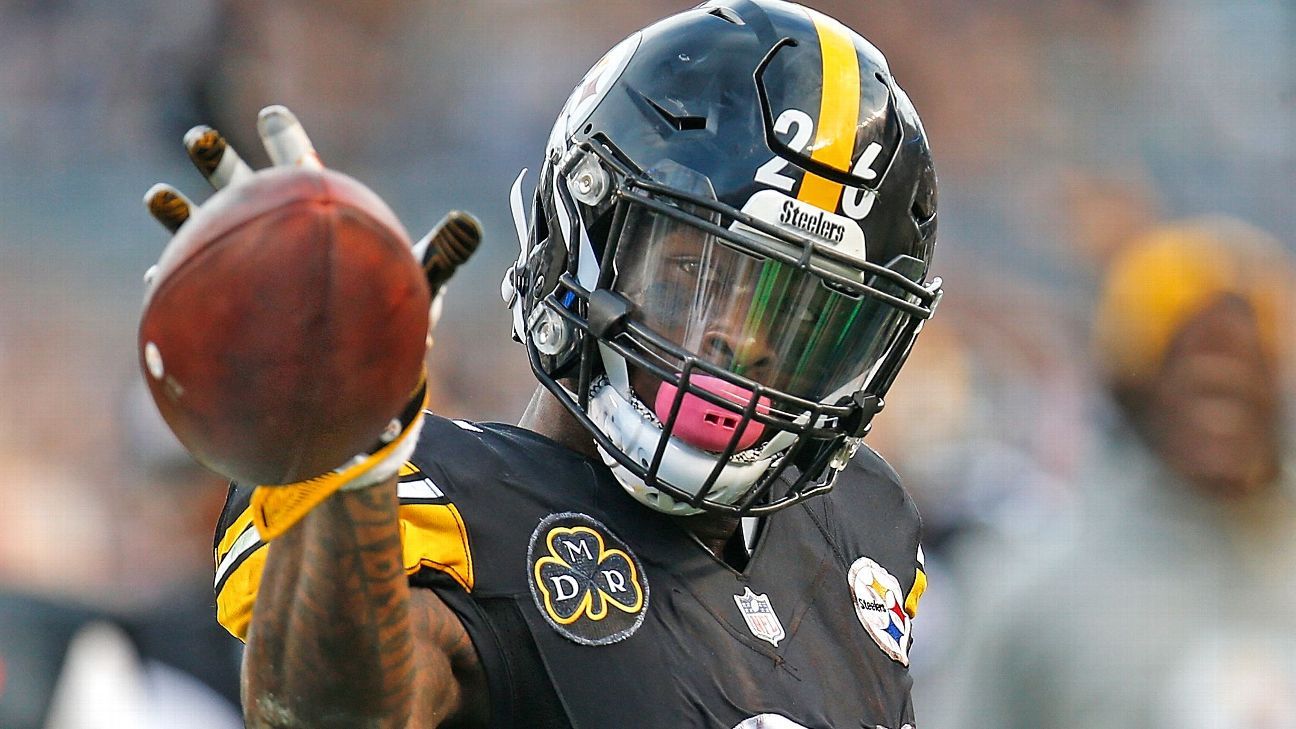Which teams will be the most aggressive when the free-agency market opens?
NFL Nation reporters assess how active all 32 teams will be when the new league year kicks off on March 13, based on the following scale:
Let’s start with the teams that will be the most active, or skip to your favorite team below:
1. Aggressive
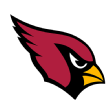
They already have been aggressive in free agency, and they’re not expected to slow down. They should have more than $40 million in cap space and likely will use most of it to rebound from a disappointing 3-13 season. They’ve already signed CB Robert Alford, DE Brooks Reed and TE Charles Clay — all of whom fill needs. But Arizona still has gaps at wide receiver and on the offensive line. General manager Steve Keim is set on bouncing back this season by whatever means necessary. The Cardinals have the No. 1 overall pick and will be aggressive in the draft, but Keim and new coach Kliff Kingsbury will use free agency to put a bandage on immediate needs, especially on offense, while using the draft to build long term. Keim has found success throughout his career on one-year “prove it” deals with experienced veterans, so look for more of those this offseason. — Josh Weinfuss
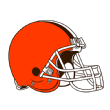
John Dorsey has been uber-aggressive from the day he took over as the Browns’ general manager. It would be fool’s gold to believe that Dorsey will not be aggressive in free agency with almost $80 million in salary-cap space. He has to keep some of that money for his players (Damarious Randall), but Dorsey could strengthen the team at left tackle, receiver, linebacker and perhaps cornerback with the cap space with which he has to work. — Pat McManamon
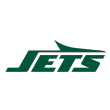
Prepare for a dizzying number of signings over the next few weeks. The Jets have $102 million in cap space, and they’ll need it because they have a league-high 26 players headed to unrestricted free agency. After 14 wins in the past three seasons, the Jets’ roster needs major help on both sides of the ball. They will pursue running back Le’Veon Bell and the best available edge rusher, which could be Dante Fowler, Trey Flowers or Anthony Barr. Upgrading the offensive line is a must, and they can start by going after centers Matt Paradis (Broncos) or Mitch Morse (Chiefs). The offseason goal is to improve Sam Darnold‘s supporting cast. — Rich Cimini
2. Active, but not breaking the bank

First-year general manager Eric DeCosta has already recited Ozzie Newsome’s mantra of “right player, right price,” which means the Ravens are looking for the best values. Baltimore has around $26 million in cap space after cutting wide receiver Michael Crabtree. That number can nearly double when the trading of quarterback Joe Flacco ($10.5 million in cap savings) becomes official on March 13 and the possible cutting of cornerback Jimmy Smith ($9.5 million) and safety Eric Weddle ($7.5 million). Even if the Ravens retain these veterans (especially if some agree to pay cuts), the expectation is that Baltimore will add an edge rusher, interior offensive lineman, running back and backup quarterback in free agency. But it would be a surprise if DeCosta makes a splash like signing Le’Veon Bell (although you can’t rule it out entirely). — Jamison Hensley

General manager Brandon Beane has about $80 million in cap space after spending his first two seasons shedding salary and swallowing a huge amount of dead money. That had some fans anticipating a spending spree this offseason, especially to bolster the offense around quarterback Josh Allen, but Beane wrote in a February letter to season-ticket holders that he would be “active” but “calculated” in the free-agent market and prefers to re-sign homegrown players in future years. Buffalo already signed free-agent offensive lineman Spencer Long to a three-year contract after he was cut by the Jets, and the team figures to continue looking for veteran pieces to add along the offensive line, wide receiver, tight end and potentially cornerback. — Mike Rodak

After a five-win season in 2017 and a six-win season in 2018, the Broncos have more needs than they can fill in free agency with their current cap space — projected at just over $37 million before the Joe Flacco deal, and his $18.5 million cap hit, is added on March 13. Flacco’s cap hit will be the third biggest until the team decides what to do with Case Keenum, who is No. 2 ($21 million). So, they will be selective in free agency, including trying to sign some of their own free agents, such as center Matt Paradis. They’ve already told linebacker Brandon Marshall they do not expect to pay his bonus. Wide receiver Emmanuel Sanders, defensive end Derek Wolfe and cornerback Chris Harris Jr. have similar bonuses due. It likely means this roster is getting younger and they will be as active as they can be with their limited space. — Jeff Legwold
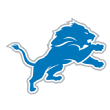
GM Bob Quinn is focused on playmakers, and depending on what the market looks like at certain positions (wide receiver, tight end, defensive end, linebacker, cornerback), Detroit should be in play for mid- to high-level players at those positions. Quinn hasn’t shown to be someone who overpays, but based on previous years, he is willing to pay for positions of need (see Marvin Jones, Rick Wagner and T.J. Lang during his tenure). Don’t be surprised to see Quinn make a couple of strong free-agent moves (Trey Flowers would be a player to look at if he makes it to free agency) and then bolster with reasonably priced depth. — Michael Rothstein

The Packers don’t have many of their own free agents who are must-sign players, so that gives GM Brian Gutekunst even more freedom with his $35 million in cap space. The question is, does he make one big signing or a handful of lower-priced moves? In his first offseason as GM last year, he went the midlevel free-agent route with Jimmy Graham ($10 million per year), Muhammad Wilkerson ($5 million) and Tramon Williams ($5 million). Given the multitude of holes on his roster, perhaps he’d go for quantity once again. — Rob Demovsky

Unlike last season when Houston attempted to make a big free-agent splash, the Texans have three draft picks in the first two rounds, which means they will likely use those to fill a few holes instead of needing to go all-out in free agency. But Houston does have three big free agents on defense — defensive end/outside linebacker Jadeveon Clowney, safety Tyrann Mathieu and cornerback Kareem Jackson — and will try to re-sign all three if the price is right. — Sarah Barshop

The Colts have an NFL-high of about $110 million in salary-cap space to try to address needs at pass-rusher, safety and receiver. Don’t get too excited, though. Colts GM Chris Ballard believes in taking a methodical approach to free agency. They’ll be active, but Ballard has said several times they have a cap on how much they’ll spend on a player. “We put a value on a player, and when it gets out of our reach I just think we are comfortable enough to sleep at night saying we are going to find an answer,” Ballard said. “… We are going to find an answer, whether it’s in that first window of free agency, maybe it’s the second window, maybe it’s the draft, maybe it’s after the draft, maybe it’s at the cut-down day. There are times to acquire players at all points during the season.” — Mike Wells

GM Dave Caldwell said at the combine that the Jaguars can be aggressive in free agency, and he’s right — but in spots. They will aggressively pursue Nick Foles or another veteran quarterback who they feel comfortable going with if they are unable to to get who they want in the draft. But as far as signing several high-priced guys? That’s not something to expect. They can pick and choose a spot — offensive line most likely — but don’t expect the kind of haul they got in 2017 with Calais Campbell, A.J. Bouye and Barry Church. — Mike DiRocco
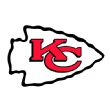
Free agency might look a lot like it did for the Chiefs last year, when they splurged on wide receiver Sammy Watkins and linebacker Anthony Hitchens. It will likely be more about quality than quantity. — Adam Teicher
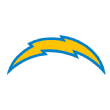
The Chargers traditionally are selective in free agency, waiting for things to calm down after the first few days of high-dollar investments on players before making a move. This year likely will not be any different. The Chargers are in the bottom half of the NFL in terms of cap space ($25.8 million), but could take a calculated risk on a player at a position of need like linebacker or defensive lineman. — Eric Williams

The Rams proved last offseason when they signed defensive tackle Ndamukong Suh to a one-year, $14 million contract that they are more than willing to approach free agency aggressively. This offseason, with quarterback Jared Goff still on his rookie contract, expect them to continue to be a aggressive — but less so than a year ago because of salary-cap space, coupled with the need to fill a few starting roles. With slightly more than $24.4 million available in cap space, the Rams must settle a need for a starting-caliber pass-rusher, defensive tackle and safety. — Lindsey Thiry

Think of the Patriots’ approach last year, and how they lost more free agents than they signed, yet they still wound up winning the Super Bowl. Why change what works for them? The approach also helped them add four compensatory draft picks for 2019 — two third-rounders, a sixth-rounder and a seventh-rounder. The expectation is more of the same, with the club exploring options in the trade market while also taking a closer look at those released by teams who wouldn’t count against the compensatory draft pick formula. — Mike Reiss

The Saints should probably be less active this year, with only $10 million to $12 million in cap space. But that has never been their style in the Mickey Loomis-Sean Payton era. Plus, they don’t have any draft picks in Rounds 1, 3 or 4 this year. Their top priority should be adding a pass-catcher, either at tight end or slot receiver. They’ll also need to either re-sign DE Alex Okafor or spend decent money on a replacement for him, among other priorities. — Mike Triplett

The Giants have an exorbitant amount of needs and not a tremendous amount of cap space. That should lead to a chunk of signings, although not at the top of the market. Expect the Giants to concentrate on their defense, from front to back. — Jordan Raanan
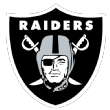
With a lean toward aggressiveness, because if you know anything about coach Jon Gruden, you don’t know what he’s truly thinking. And there is no résumé for GM Mike Mayock. Still, the Raiders have nearly $74.5 million in cap space, per OverTheCap.com, and, as Mayock said, needs all over the roster, so it’s not like one splashy signing (Le’Veon Bell) will solve everything. Or, as Gruden said at the combine, “Every veteran player comes with a price tag. These contracts are very expensive, so you have to measure the financial part of things as well as, ‘Does he fit your scheme and fit your operation?'” — Paul Gutierrez

The Eagles have about $2 million in cap space right now, but they’ll free up some room between now and the start of the league year in order to be modest players. Running back and a deep threat at receiver are among the priorities. — Tim McManus

The Niners figure to have around $70 million in cap space, which would allow them to fall into the aggressive category should they so choose. But general manager John Lynch and coach Kyle Shanahan won’t spend for the sake of it. That means the approach will probably be similar to what it was in 2018 when San Francisco had a couple of primary targets (center Weston Richburg and running back Jerick McKinnon) it was willing to spend big on to land. This year could feature a bit more star power in terms of the names, but the strategy will likely feel familiar unless some top edge rushers unexpectedly avoid the franchise tag, which could change the calculus. — Nick Wagoner

Not since Cary Williams in 2015 have the Seahawks brought in an outside free agent with a multiyear deal worth more than $5 million on average. “Active, but not breaking the bank” has been general manager John Schneider’s M.O. since then. Yes, the Seahawks are projected to have more than $50 million in 2019 cap space and can free up a few more million by releasing Barkevious Mingo and/or Jaron Brown. But remember, a franchise tag for Frank Clark at around $18 million would take up about a third of that, and the Seahawks have other in-house free agents they’ll try to re-sign such as K.J. Wright, J.R. Sweezy, D.J. Fluker, Justin Coleman and Mychal Kendricks. Look for Schneider to again scour free agency for bargain buys at linebacker, safety, wide receiver, backup quarterback and kicker. — Brady Henderson
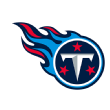
Armed with just over $40 million in cap space, expect the Titans to sign impact players at the right price. They’ll be active in the second wave of free agency once the market is set with the flurry of moves, especially at defensive end/outside linebacker. The safety position will be one to watch with Kenny Vaccaro becoming a free agent, Kevin Byard as a prime candidate for a lucrative extension and Johnathan Cyprien as a possible cap casualty. After hovering slightly above .500 (9-7) the past two seasons, the team has to make the necessary moves to ascend to the next level. But this year’s free-agent group lacks a player that can single-handedly elevate the Titans to Super Bowl contender. — Turron Davenport

They’ll be kind of active because they have gaps to fill, but it won’t be about high-priced players and will mostly be about seeking a few good bargains. That has been their M.O. under president Bruce Allen. Washington does have around $17 million under the cap right now and will release some players to free up more space. They will sign a veteran quarterback, although it might be a low-cost one such as Josh Johnson. They could sign an inexpensive veteran left guard and get more help at inside linebacker. They could use help at safety. And the team won’t find all its answers in the draft. But the Redskins now are keen on adding compensatory picks, so they will have to sign some bargain players but likely allow their high-priced guys to leave (such as LB Preston Smith). — John Keim
3. Not as active as fans might hope
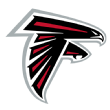
The Falcons, with about $24 million in cap space, seem unlikely to be big players in free agency with the possibility of defensive tackle Grady Jarrett eating up $15.3 million in cap space under the franchise tag. Now, the Falcons could reach an extension deal with Jarrett and significantly lower that 2019 cap number, but that won’t necessarily lead to a spending spree. Signing Jarrett, however, could free up room for some activity such as re-signing pass-rusher Bruce Irvin. — Vaughn McClure

The Panthers have slightly more than $15 million in cap space after re-signing safety Eric Reid, so they won’t be very active unless they clear more space. That would happen if the team opts to move on from left tackle Matt Kalil. The focus likely will be on finding a midrange-priced edge rusher with the retirement of end Julius Peppers or an offensive lineman who can play multiple positions. — David Newton

The Bears rank near the bottom of the league in cap space but managed to free up almost $6 million by releasing tight end Dion Sims and $3 million by restructuring Kyle Long‘s contract. Still, don’t expect the Bears to be all that aggressive in free agency after making their big move in September by trading for and extending Khalil Mack (with $11.3 million counting on the cap for 2019). But the Bears do have more leverage this offseason, thanks to a 12-4 season, making Chicago a much more attractive destination for free agents. — John Roberts

It’s hard to say exactly how active the Bengals will be with an entirely new coaching staff, but their general strategy in the past has been to build through the draft. The Bengals did try to go after safety Kurt Coleman last year, showing they might be budging a little on that. However, they have several of their own players to re-sign, so their top focus will likely be doing that rather than going after other free agents. — Katherine Terrell

The Cowboys’ priority is to re-sign their own, like DeMarcus Lawrence, Amari Cooper, Dak Prescott and potentially Ezekiel Elliott and Byron Jones, which will chew up a lot of their cap space, time and effort. Executive vice president Stephen Jones does not believe going big in free agency is a smart play, but the Cowboys will look to make smart — if not splashy — signings. But remember, the Cowboys made an offer to Sammy Watkins last year worth $16 million per year only to see him sign with the Chiefs. If the Cowboys see an opportunity, they will not be afraid to take it. Someone like Earl Thomas could be a potential target, provided the price is right. — Todd Archer
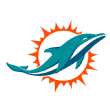
The Dolphins have been transparent, noting their desire to rebuild and avoid signing short-term fixes like they have in recent years. This offseason will be spent getting their salary cap in order and likely ridding themselves of high-priced veterans like quarterback Ryan Tannehill and defensive end Andre Branch rather than adding them to the roster. Expect Miami to target the second wave of free agency to bolster the roster, but fans hopeful for a big-name splash signing will likely be disappointed. — Cameron Wolfe

This is the safest prediction for a team that ranks in the bottom five of available cap space. The Vikings knew they would be restricting their capabilities in free agency for 2019 and 2020 when they signed quarterback Kirk Cousins, who accounts for 15.5 percent of the cap. If Minnesota wants to go after an offensive lineman in free agency, franchise Anthony Barr, pay Sheldon Richardson or even consider offering Adam Thielen a new deal this offseason, it will have to get creative with how it goes about moving money around. That means looking to restructure a handful of contracts or releasing players who could free up a chunk of cap space (i.e., Everson Griffen, Andrew Sendejo, Mike Remmers). The Vikings have to be financially choosy with the needs they address in free agency. The rest will have to come in the draft. — Courtney Cronin

General manager Kevin Colbert said last week not to expect the Steelers to make a big splash in free agency — that has never been their philosophy. With almost $18 million in cap space ahead of the likely trade of Antonio Brown, the Steelers will look for affordable help on defense or receiver and have several of their own free agents to focus on, including guard Ramon Foster and linebacker Ryan Shazier, who won’t play in 2019 but is still expected to be signed. And then there is the new deal the team is working on for quarterback Ben Roethlisberger, who is entering the final year of his contract. This doesn’t add up to the Steelers being big players in free agency later this month. — John Roberts
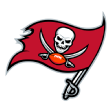
The Bucs currently have just $19 million in cap space with an unsigned left tackle in Donovan Smith, who will be arguably their biggest priority (keep in mind that they will need $9 million for their rookie pool). It might also mean parting ways with Kwon Alexander and Adam Humphries. They’ll try to maneuver some cap space around, offering players more guaranteed money upfront and making some cuts, but this isn’t looking like a blockbuster year unless they can move some money. — Jenna Laine
